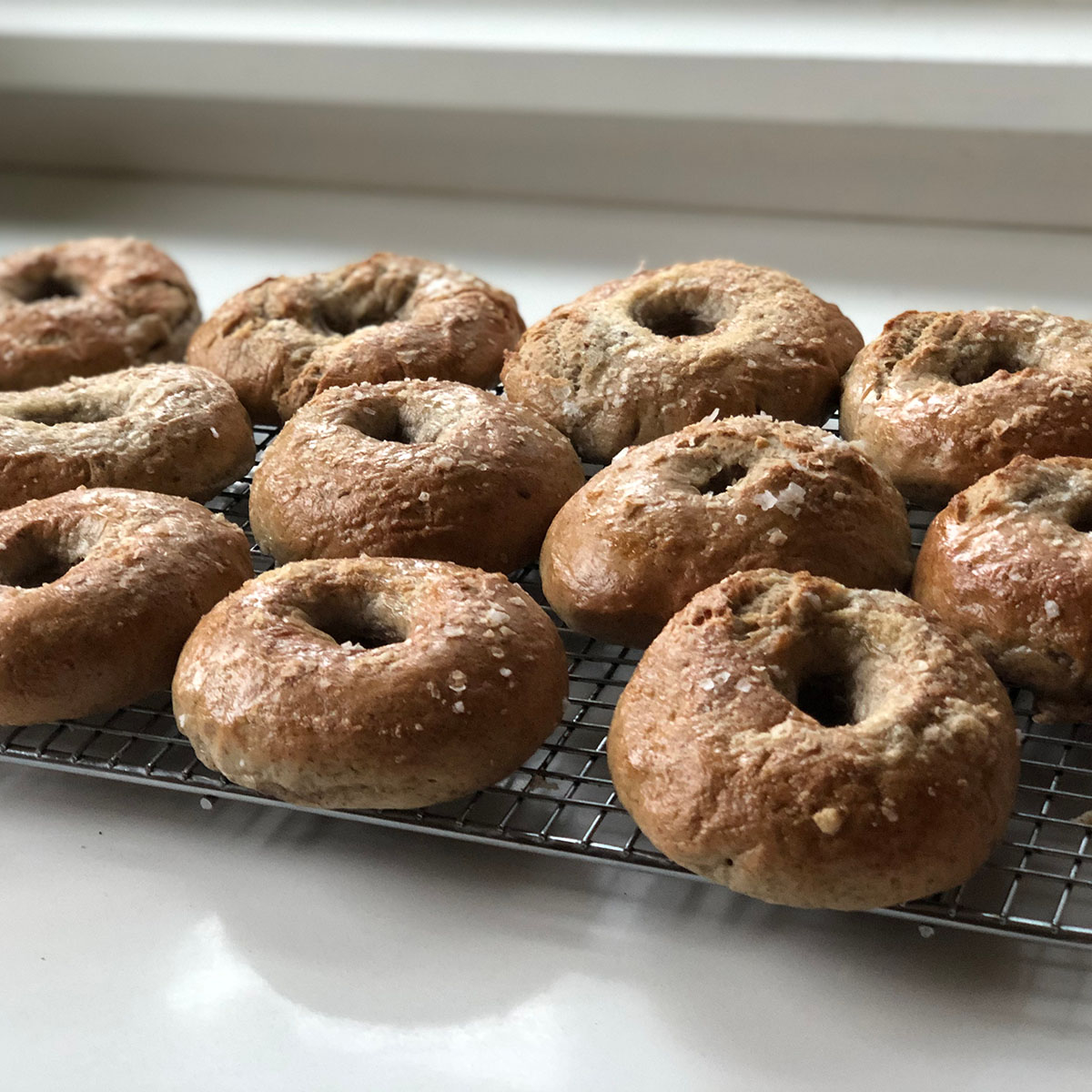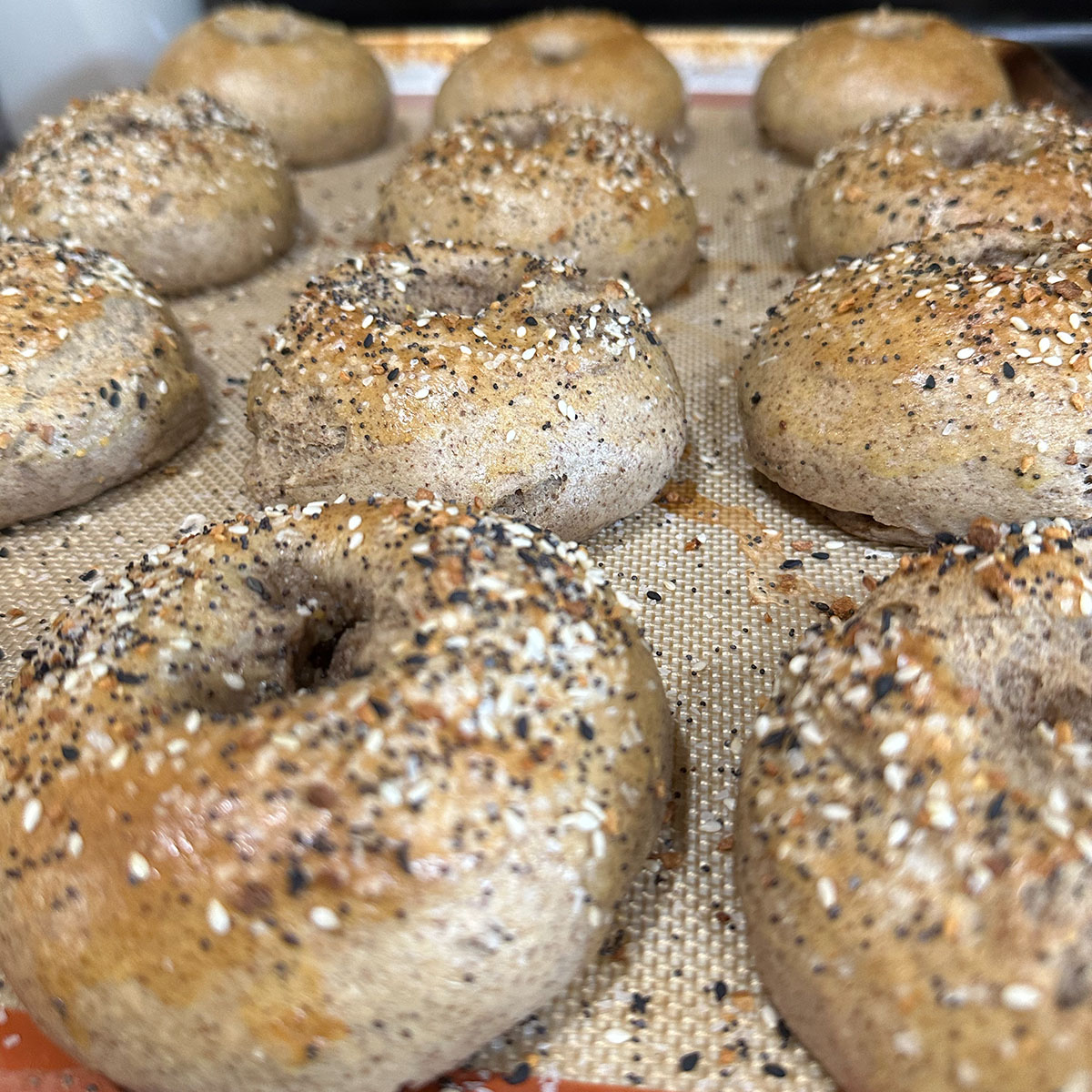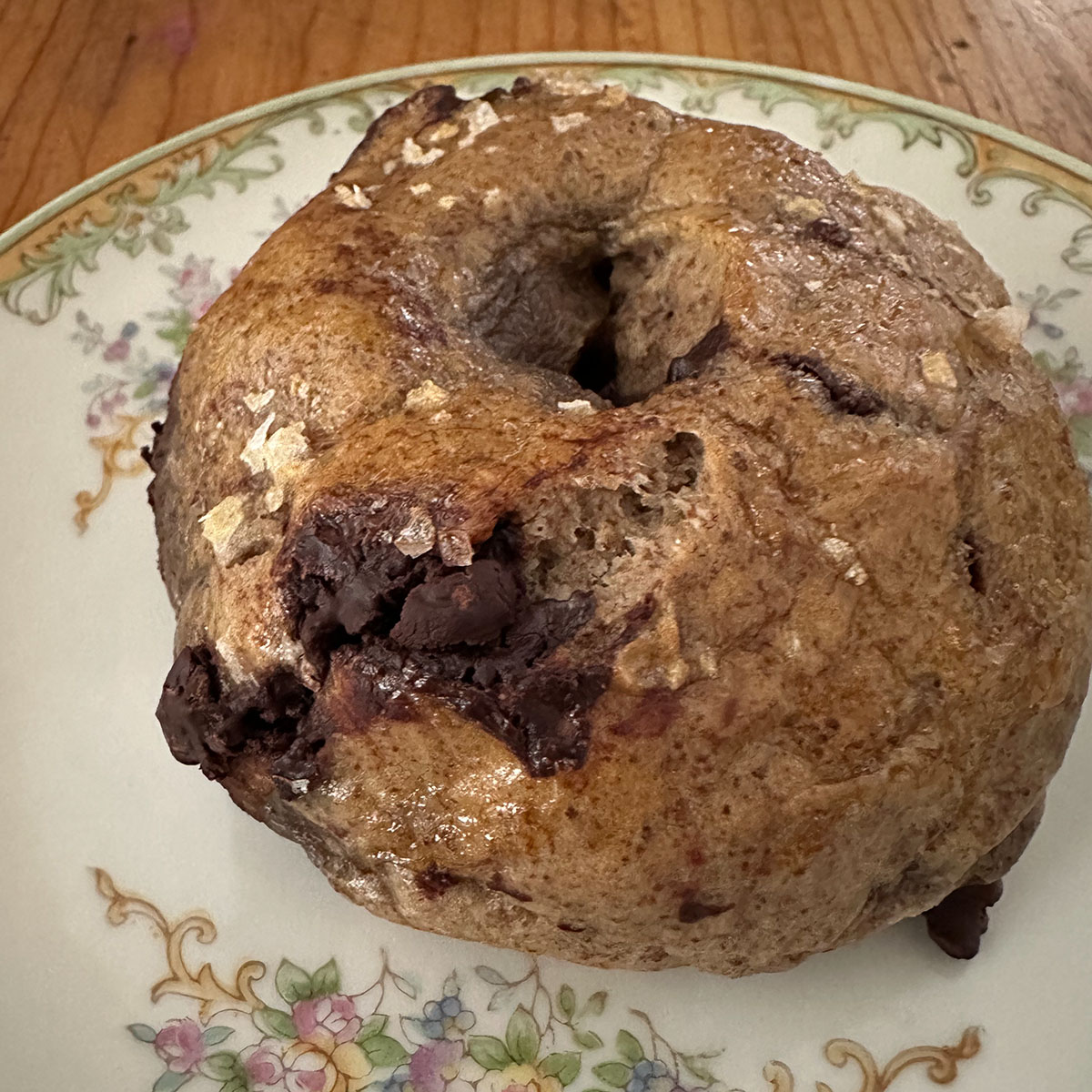Why We Boil Our Gluten-Free Bagels (And Most Brands Don’t)
Most People Don’t Know What Makes a Real Bagel a Bagel
A lot of gluten-free products come shaped like bagels. Round, with a hole in the middle, maybe a nice golden color. But when you bite into them, you know immediately: this is not a bagel.
What makes a real bagel different and what most gluten-free brands skip is the boil.
Yes, boiled bagels are a thing. And it’s not just tradition. It’s science.
What Does Boiling Actually Do?
In traditional bagel-making, boiling is what creates that distinctive chew and glossy crust.
When you boil the dough briefly before baking:
- The hot water gelatinizes the outer starches
- This forms a thin, firm skin around the dough
- That skin locks in moisture, limits expansion in the oven, and creates a dense, chewy interior
- After baking, you get that shiny, golden, slightly crisp crust that makes bagels so satisfying
Without the boil, you’re essentially making bread with a hole in it.
Why Most Gluten-Free Brands Skip the Boil
Gluten-free dough is fragile. It lacks the elasticity that gluten provides. When brands try to boil poorly structured gluten-free dough, it often falls apart, turns gummy, or warps into odd shapes.
Mass-market gluten-free bagel makers often take the easy route:
- Skip boiling entirely
- Use steam ovens instead (faster, safer for weak doughs)
- Focus on shelf life and easy production, not texture
The result? Bagel-shaped bread rolls that crumble easily, dry out fast, and completely fall apart after freezing or toasting.
Why We Boil Anyway (Even Without Gluten)
At Sweet Chaos Bakery, we didn’t want to make bagel-shaped bread. We wanted real bagels that are chewy, dense, sturdy, and satisfying.
That meant figuring out how to create a gluten-free dough that could handle the boil.
We spent years testing:
- Different flour blends
- Binding agents
- Hydration levels
- Boil times
- Cooling and freezing behavior
Eventually, we built a dough that holds its shape through the boiling process and bakes up into a real bagel even without gluten.
The Sweet Chaos Difference
We boil every bagel. Every time. Because that’s how bagels are supposed to be made.
- Boil-first process: Creates that perfect chewy crust and dense crumb.
- Gluten-free, Paleo-friendly, and grain-free: No wheat, no dairy, no refined sugar.
- Organic and non-GMO: Clean ingredients you can trust.
- Small-batch, hand-tested: This isn’t factory-produced “good enough” bread.
- Flash-frozen after baking: So your bagels arrive fresh, survive the freezer, and toast up beautifully when you’re ready.
Why Boiled Gluten-Free Bagels Taste Better
It’s not about the shape. It’s about the texture.
- That classic bagel chew
- A sturdy crust that crisps up perfectly in your toaster
- Strong enough to handle your toppings — eggs, avocado, cream cheese, whatever you’re stacking
- No crumbling, no gummy middle, no dry disappointment
You shouldn’t have to settle for bland, spongey “close enough” substitutes. Boiling makes the difference you can taste.
TL;DR
- Real bagels are boiled before baking.
- Most gluten-free brands skip this step because it’s hard.
- We boil every bagel, every time.
- That’s why our bagels taste like bagels not like bread with a hole in it.
Latest Articles
Gluten-free lunch ideas for busy days
No more sad salads. Get fast, satisfying gluten-free lunch ideas for home, work, or on the go. Paleo-friendly and freezer-ready options included.
Read MoreStock your freezer with the paleo bagels you’ve been missing
Stock your freezer with paleo breakfast bagels that toast up perfectly. Grain-free, gluten-free, and delivered frozen nationwide.
Read MoreAre Paleo baked goods healthy?
Learn what makes paleo baked goods a healthier choice. No grains, no gluten, just nutrient-dense ingredients that taste amazing.
Read More

